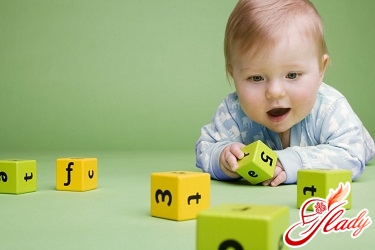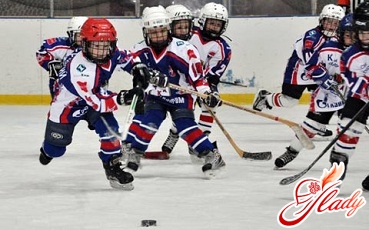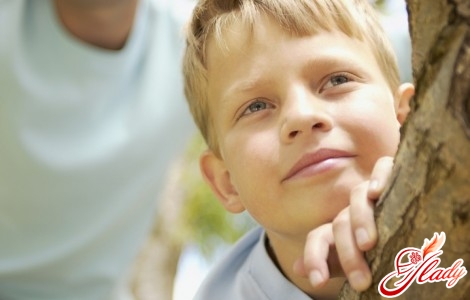 Almost all babies, after they havethe first teeth appear, they start looking for a use for them and biting. According to child psychologists, biting is a completely natural way for a baby to learn about the world around him. However, it is still not worth making such behavior the norm for the baby's interaction with the world around him. And all parents without exception should know how to wean a child off biting. So - the problem is obvious - the child bites, what to do? How to explain to a tiny fool that biting an apple or a carrot is not only possible, but also necessary, but trying to bite mom, dad and brother is not worth it? The baby's parents are tormented by thoughts - how to react correctly to the baby's bites? Let him understand that you do not like such behavior? What if this can injure his delicate childish psyche? And will he understand the ban? Continue to endure, hoping that the baby will outgrow this habit and the problem will disappear on its own? But everything is not so simple. The baby's teeth, despite their small size, are quite strong, and you can hardly hold back a cry of pain after another bite from your own rodent. At the playground, the crowd of children thins out suspiciously quickly when you appear, and for some reason your baby is invited to visit only once... And when it's time to go to kindergarten, parents fall into a state of righteous anger. How could it be otherwise? After all, everyone has started to undeservedly find fault with your baby, such a sweet and charming child, and slander him? You are used to answering all the complaints of teachers about the child biting in kindergarten, habitually that he is too small and does not understand anything yet. And you do not see any particular problem in the fact that the child bites in kindergarten, but on the contrary, you feel a certain peculiar feeling of pride for your baby, who knows how to stand up for himself. However, one day, the father of one of the rodents that your dear one bit sternly threatened your child that next time he would punish him, and advised you to seek help from a child psychologist to find out why your child bites and pinches. And - lo and behold - your child looked meaningfully at this very strange father, but left the child alone. And here you are overcome with real confusion. Does this mean that your little one understands everything perfectly well? And this means that you must direct all your efforts to weaning your child off the bad habit of biting. But what about such necessary children's freedom, which all child psychologists talk about?
Almost all babies, after they havethe first teeth appear, they start looking for a use for them and biting. According to child psychologists, biting is a completely natural way for a baby to learn about the world around him. However, it is still not worth making such behavior the norm for the baby's interaction with the world around him. And all parents without exception should know how to wean a child off biting. So - the problem is obvious - the child bites, what to do? How to explain to a tiny fool that biting an apple or a carrot is not only possible, but also necessary, but trying to bite mom, dad and brother is not worth it? The baby's parents are tormented by thoughts - how to react correctly to the baby's bites? Let him understand that you do not like such behavior? What if this can injure his delicate childish psyche? And will he understand the ban? Continue to endure, hoping that the baby will outgrow this habit and the problem will disappear on its own? But everything is not so simple. The baby's teeth, despite their small size, are quite strong, and you can hardly hold back a cry of pain after another bite from your own rodent. At the playground, the crowd of children thins out suspiciously quickly when you appear, and for some reason your baby is invited to visit only once... And when it's time to go to kindergarten, parents fall into a state of righteous anger. How could it be otherwise? After all, everyone has started to undeservedly find fault with your baby, such a sweet and charming child, and slander him? You are used to answering all the complaints of teachers about the child biting in kindergarten, habitually that he is too small and does not understand anything yet. And you do not see any particular problem in the fact that the child bites in kindergarten, but on the contrary, you feel a certain peculiar feeling of pride for your baby, who knows how to stand up for himself. However, one day, the father of one of the rodents that your dear one bit sternly threatened your child that next time he would punish him, and advised you to seek help from a child psychologist to find out why your child bites and pinches. And - lo and behold - your child looked meaningfully at this very strange father, but left the child alone. And here you are overcome with real confusion. Does this mean that your little one understands everything perfectly well? And this means that you must direct all your efforts to weaning your child off the bad habit of biting. But what about such necessary children's freedom, which all child psychologists talk about?
What can and can not be?
For the first time, your baby has experienced the power of gum compression.even when he was sucking milk. After all, milk can only be obtained by making a certain effort and properly squeezing the mother's nipple with gums. In addition to the mother's breast or nipple, teethers and rubber toys have become trainers for growing teeth. If, by the time the baby's first teeth appear, the mother still continues breastfeeding, she will certainly feel the natural curiosity of the baby, which he satisfies by biting the mother's breast. A woman should never silently tolerate, and even more so encourage such behavior of the baby. Otherwise, you risk getting a biting child. Be sure to let him know immediately after your baby tries to bite you for the first time that you do not like it. If the child tries to bite again, take the breast away from him - he must clearly understand that by biting, he is deprived not only of milk, but also of his mother's breast. By the way, taking away the breast is the best way to wean a one-year-old child off biting. As a rule, even the smallest babies very quickly begin to understand that it is not worth biting their mother. The reasons why small children bite are slightly different and the child quickly outgrows them. However, very often a slightly grown baby begins to bite again, often without any apparent reason: he just comes up to someone and unexpectedly bites. And here, too, the correct reaction of the close people around the baby is important. However, before telling you how to react correctly, I would like to draw the attention of parents to such a reason for a child's biting as boredom. In most cases, boredom is the answer to the parent's question about why children bite. In this peculiar way, the baby tries to attract the attention of adults, most often the mother. It is extremely important for a child to be in the center of attention of mom and dad as often as possible. And at the same time, it does not matter at all for the baby what caused this surge of attention - a surge of tenderness or anger caused by a bite. That is why child psychologists and teachers tirelessly repeat the need to pay as much attention to the child as possible. Constantly communicate with the child, praise him more often, hug and kiss him. Many parents are afraid of spoiling the child with such behavior. However, do not confuse love with permissiveness - it is simply impossible to spoil with love.
- I do not want to communicate with you!
However, if your child tries to bite, trylimit your communication with him as quickly as possible. If the child fights and bites, tell him in a stern voice that you do not like such behavior. By the way, psychologists advise squatting down during a conversation with a child, thus getting down to the child's level. Everything you say will be understood and accepted by the baby much better. After you have given the baby a warning, leave the room - the child will very quickly understand the cause-and-effect relationship between the bite and the disappearance of the mother. As a rule, such a measure is very effective in helping to wean a child off biting.
- Oh, it hurts!
If your little one bites, try this:tactics of behavior. Do not tolerate pain as you usually do. During the bite, shout loudly: "Ow! It hurts me" or something like that. Such a measure can sometimes be very, very effective - one time may be enough for the baby to forget about his habit of biting forever. However, alas, this method is good only for sensitive children who can empathize with the people around them. Such children are capable of crying when they see another baby scrape their knees, or when they see a homeless dog or cat. However, less sensitive natures believe that it is bad only when they are hurt. But they have every right to hurt others.
- Fix negative associations with a bite.
Many parents hear this advice over and over againbite the child in response. They say that in this way the child will have the most negative associations with bites. However, in fact, this is a misconception. Such tactics of behavior of adults often lead to the exact opposite result. By biting a child, we give him confirmation of the correctness of his behavior: "I will bite because daddy bites too." A much more reasonable action would be not to show retaliatory aggression, but, on the contrary, to express sympathy to the victim. Hug and kiss the family member who was attacked by your little biting aggressor. Such tactics of behavior will make the child think about the acceptability of such behavior.
If the child repents
In the event that a child has bitten someone inin a fit of emotion, and not purposefully, immediately came to his senses and sincerely repents of his actions, there is no need to scold him too much. By the way, such a situation can be used to develop a sense of empathy for the people around him in the baby. Let the little rodent blow on the bitten place, stick a band-aid, give the offended person a toy. Perhaps some parents will consider such troubles unnecessary because of such a seemingly trifle, believing that the usual "sorry" will be quite enough. However, in this case, when the baby grows up, do not be surprised that you will not get any attention or help from him, except for the usual "sorry" thrown over the shoulder. Children are not born insensitive, but we raise them that way.
I'm tired!
The child's nervous system is extremely sensitive andChildren are very prone to overexcitement. And in such a situation, the baby is practically unable to control his emotions. If a child suddenly bites one of the children during an active game or in a kindergarten, perhaps he is simply very tired. However, this assumption is true only in cases where a bite is something out of the ordinary for a child, but in no case is it the norm of behavior. In such a situation, do not scold your child under any circumstances - he is already very scared of such an outburst of uncontrollable anger, which even adults do not always manage to cope with. Psycho-emotional stress is another reason why a small child bites. In such cases, adults should take the baby to a quiet and calm place as soon as possible. However, in no case do this in such a form that the child could perceive leaving the play area as punishment. Motivate this action of yours precisely by the need to rest a little and nothing more. Stay with your baby until he or she has completely calmed down – talk to him or her, read a book to him or her, but never leave him or her alone, as this may worsen the baby’s psychological state. If your baby has ever allowed himself or herself to bite someone, you need to closely monitor him or her, controlling his or her mood and preventing such outbursts of anger in a timely manner. If you notice that your child has become nervous while playing, or has begun to show the first signs of discontent, distract the baby’s attention by switching it to something else. Anger is a completely natural emotion that has the same right to exist as resentment, joy, and others. Admit it to yourself – even you, adults who know how to control your emotions, often feel anger. But unlike your baby, you know very well how to let it out without causing harm to the people around you. So why not teach your baby this? Show your little one how to slap their palms on a sofa cushion, tear unnecessary pieces of paper into small pieces, and finally, scream loudly. Of course, screaming is not the best way out of the situation, but it is precisely with the help of screaming that a small child can most easily get rid of the emotions that overwhelm him, by the way, both positive and negative. But you will probably agree that screaming is much more preferable than painful bites. Complete suppression of negative emotions in a baby is unacceptable under any circumstances, because it can lead to the development of various neurotic reactions. As a result, such imaginary control over anger can result in long-term treatment by a child psychologist and neurologist. Agree that this is too high a price for silence in the house.
Blackmail and threats
Even the smallest children arewonderful psychologists and very often deliberately drive adults into the framework that is necessary for them at the moment. This also applies to biting. Children understand very well that biting is ugly and shameful. But they understand even better that it will be the mother who will be the first to feel awkward if the baby starts biting in front of strangers, for example, in a store. And the baby begins to skillfully manipulate this knowledge, resorting to blackmail "buy me, or I'll bite you." Most often, the mother will give the child what he wants, just to avoid an unpleasant scene in front of strangers. And by the time they get home, the mother will stop being angry and will not punish her child. And the child, knowing this perfectly well, will take advantage of this state of affairs. The best solution to such a problem is to eliminate the provoking environment. Has he started to be capricious? Take the child out of the store, despite his screams and cries. Do not give in to the persuasion and hysterics of the baby and do not return to the store. One or two such lessons - and your child will forever abandon the habit of trying to blackmail parents. It is possible to wean a child off biting. After all, when a one-year-old bites, it is still understandable and acceptable, but when a 3-4 year old tries to bite, measures must be taken in an emergency mode. However, do not hope that you will do this instantly, especially if for a long time you have in no way made the child understand that such behavior is unacceptable. Your main assistant in this difficult task should be consistency. Once you forbid biting, you must not let the child bite even once, even if you really have no time to reprimand him at the moment. Otherwise, the child will test the limits of what is permitted again and again, hoping that the parents do not have time for him and there will be no punishment for his actions. Of course, your child will soon grow up. And for sure at school he will not solve problems by biting. But, by weaning your baby off biting at an early age, you will save your child from the fact that all children will start to avoid him. After all, a person’s self-esteem begins to be formed in early childhood. So let your baby grow up smart, happy and self-confident. We recommend reading:









